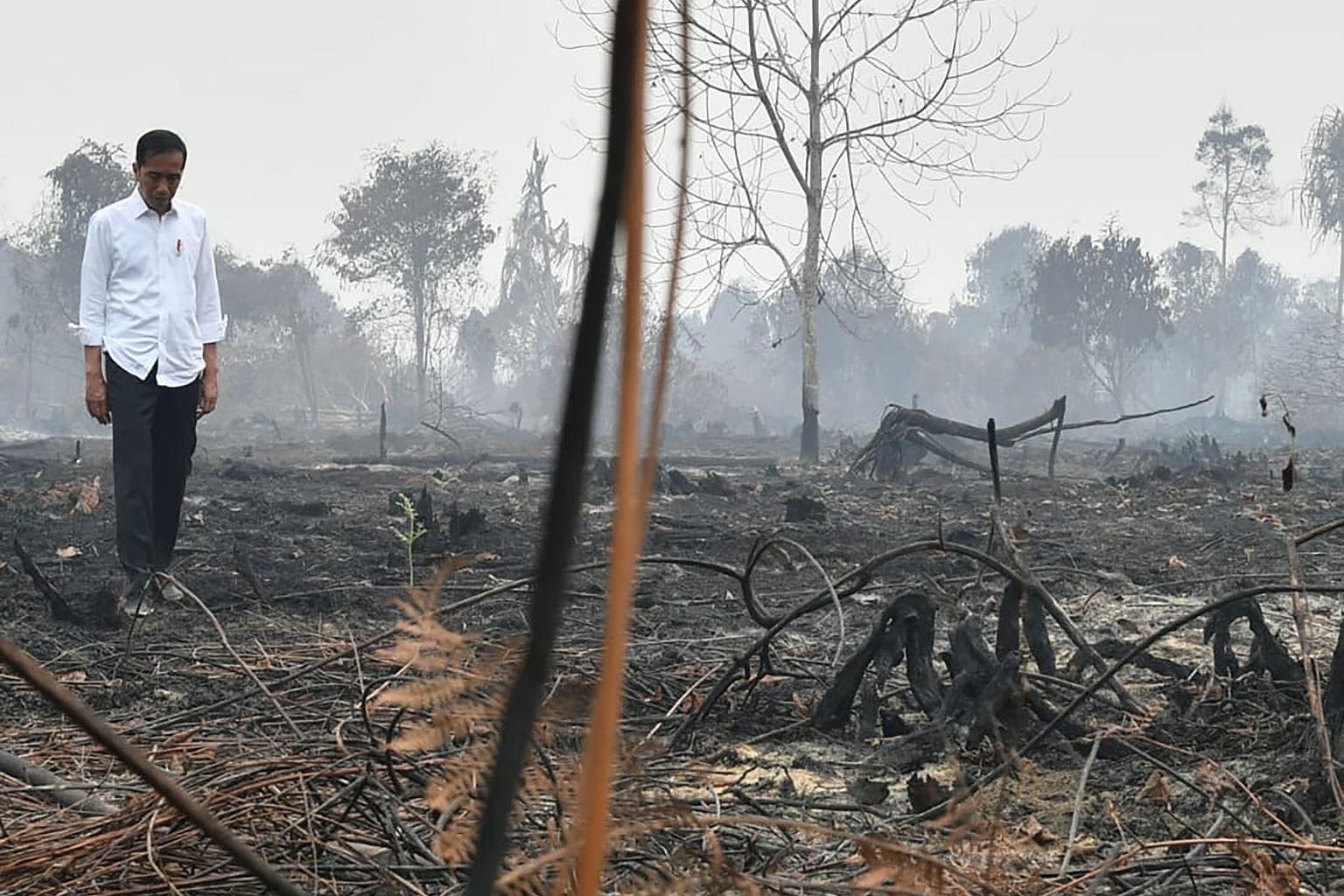It was a hectic year for Indonesian President Joko Widodo, who has been named The Straits Times' Asian of the Year 2019.
After a gruelling months-long election campaign in a sprawling archipelago with more than 17,000 islands and an election marked by identity politics and religious tensions, voters in South-east Asia's largest economy returned Mr Joko to office on his promises of economic growth, peace and prosperity.
It was a hard-fought victory. He secured 55.5 per cent of the vote against retired army general Prabowo Subianto, who rejected the result at the outset with claims of massive electoral fraud. In what many saw as a replay of the previous polls in 2014, Mr Prabowo went on to challenge the result at the Constitutional Court and lost again.
Yet, in the name of national unity, the pragmatic 58-year-old President decided to embrace his political rival. An MRT ride together and a satay lunch to mend fences - and shortly thereafter Mr Prabowo found himself Defence Minister in Mr Joko's new Cabinet in October.
While critics decried the move, the bitter polarisation in both camps effectively ended. As the icing on the cake, support from Mr Prabowo's Gerindra party boosted Mr Joko's ruling coalition's control of the 575-seat Parliament to a whopping 74 per cent.
Popularly known as Jokowi, the former furniture exporter's meteoric rise from a small-town mayor in the central Javanese city of Solo in 2005, then briefly as governor of the capital Jakarta in 2012, to president of the world's most populous Muslim-majority country in 2014 has been well-documented.
Mr Joko was the first Indonesian president with no ties to the political or military elite. His humble and clean image, coupled with a penchant for impromptu visits, or "blusukan", to markets and public places to mingle with ordinary people lent to his immense popularity.
He has enjoyed a number of notable successes in his first term - and suffered a few upsets. He won praise for developing new infrastructure such as airports, dams, roads and bridges, and expanding social welfare through his healthcare and cash transfer programmes. In March, he inaugurated Indonesia's first MRT subway after years of delay under past leaders.
But he has also been criticised for turning a blind eye to past human rights abuses and corruption. Over the last few months, he has had to deal with various crises, including student protests over an anti-corruption law, ethnic violence in the Papua region and the haze from land and forest fires that choked the South-east Asian region.

Abroad, he quietly pushed his country's initiative to formulate the Asean Outlook on the Indo-Pacific, a document laying out the 10-nation bloc's common position on regional cooperation, security and prosperity and also its stance to not take sides with any major powers competing for influence in the region. The document was adopted at the Asean Summit in Bangkok in June.
"This outlook represents the centrality and force of Asean in upholding the principles of peacekeeping, fostering a culture of dialogue, and strengthening cooperation," Mr Joko said.
No matter the challenges, Mr Joko has kept a cool head, often reflected in his manner of speech.

Indeed, the soft-spoken President has always preferred to let his actions do the talking. These days, he has taken to delivering his messages of unity and progress through comics and caricatures.
"Dare to try, dare to change", Mr Joko wrote in a Nov 17 Facebook post to accompany a comic strip showing a man resembling him helping his young grandson build a more stable tower of toy bricks.
Perhaps a caricature he posted on Facebook on Nov 25 serves to sum up his hope for the country in his second term.
Reed-thin and wearing his trademark white shirt, folded at the sleeves, Mr Joko was depicted running with ordinary people amid a backdrop of roads, bridges, crane towers, subway trains and satellites. The caption read: "Infrastructure is our main capital to progress and compete."
Indeed, the President has more infrastructure projects in the pipeline, has plans to equip Indonesians with vocational skills, cut red tape and loosen rigid labour laws to draw foreign investment. He has also proposed moving the administrative capital from congested Jakarta to East Kalimantan.
In a message that accompanied the Nov 25 posting, Mr Joko wrote that infrastructure had created millions of jobs and opened up new areas of growth.
"More than that, as a form of public service, infrastructure allows for the existence of social justice for all Indonesians," he added.
"Come on, let's run together to pursue progress."


